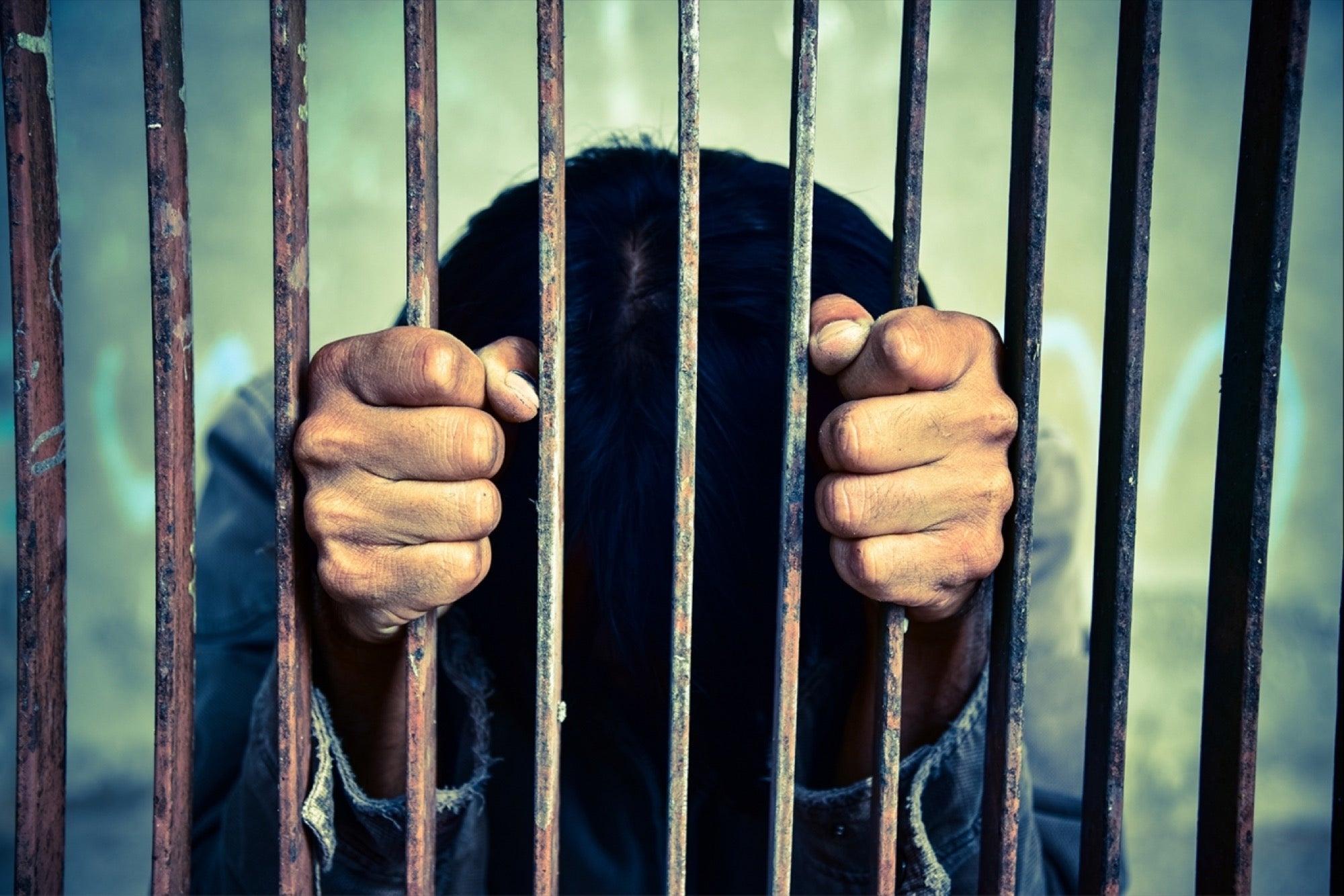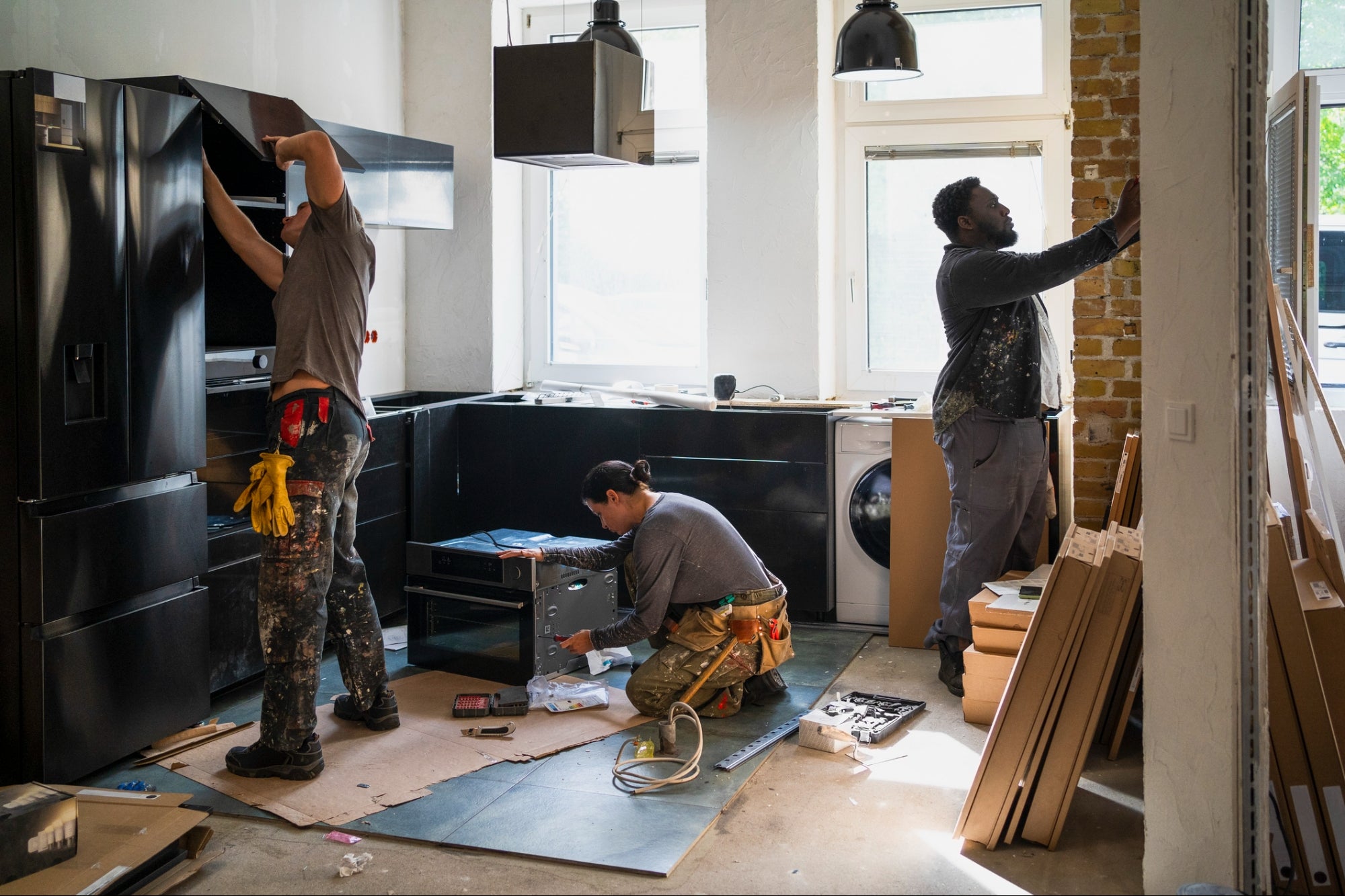In Prison I Found Freedom Through My Personal Discipline Even when we have no control over external circumstances we retain control of actions and reactions.
By Mansal Denton •

Opinions expressed by Entrepreneur contributors are their own.

Every morning, 53 prison inmates woke up to bright lights and the sound of chow at 4:30 a.m. A small fraction rubbed groggy eyes, put on orange jumpsuits and sandals, and shuffled towards the trays full of food. None of the food was truly good by the standards of anyone outside of prison, but we found some meals that excited us more than others.
My only problem was, I never ate at 4:30 in the morning because it disrupted my routine. With those same groggy eyes, I woke up, stashed away all the food into my bowls, and filled up a water bottle with protein-filled rehydrated "milk" they served. It was all for a purpose.
After I was finished saving the meal and everyone else had gone back to sleep, my task was to read. I read hundreds of books while incarcerated. They were all with the purpose of improving my perspective, my knowledge or my life in some way. Around noon, I would finally eat my saved food, along with lunch because I was fasting daily for at least 16 hours.
Fasting, reading, and many other practices I maintained while incarcerated stick with me to this day. Some have varying degrees of importance and nuances have changed, but the discipline I had within prison was perhaps the most important thing that helped me through difficult times.
Related: 5 Harsh Lessons Learned in Prison That Made Me a Better Entrepreneur
Prison stripped me of all power or control. My life was at the whim of the guards. My possessions were owned by the state of Texas and fit in a shoebox. My interactions and connections with other humans was curtailed. But there was one thing I had control of -- my discipline.
You may not be physically incarcerated as I was, but at times you may feel imprisoned by your situation. Whether it is your profession, your physique or an entrepreneurial venture, you will find discipline more freeing and fulfilling even in an uncomfortable position.
Taking control of your life.
Many professionals working 9-to-5 office jobs feel the same lack of control I felt while in prison. Some yearn for the lifestyle of an entrepreneur because they have a measure of control over their time and location.
Discipline is the fastest way to take control of arguably the most important thing in your life -- your actions. We may not have control over when our goals come to fruition, but we have control of the daily actions required to get there.
Note that these are daily actions , or some quantifiable timeframe. Taking control of your life means consistent actions -- discipline -- rather than sporadic behavior, which characterizes motivation or inspiration.
The most exciting part of a new project, business or endeavor is the early motivation and inspiration to do great things. As great as motivation can feel, it is usually derived externally and at the whim of forces you cannot control. A writer who waits for inspiration to strike typically writes nothing at all.
Stephen Pressfield, a fiction writer and author of The War of Art, advocates writing daily to overcome resistance. Every morning I wake up to write new articles even though only a few dozen readers visit my site. I can't control my readers, but I can control my writing. It is freeing to write every day and know that great work will eventually come.
Discipline is the easy way.
If consistent, disciplined action seems difficult to you, consider another perspective. Discipline is the easy way, not the hard way. The origins of the word discipline come from the Latin root "disciplina," which meant instruction or knowledge. To our ancient Greek and Roman ancestors, the practice of discipline was an enjoyable pursuit.
Related: How Your Daily Discipline Drives Success
Today, discipline gets a bad reputation. I can't tell you the number of people inside and out of prison who have told me in one way or another that discipline was too hard to cultivate. The word discipline itself has taken a negative, almost masochistic connotation. The word in Middle English (circa: 1150-1470 AD) meant "mortification by scourging oneself." It is no wonder discipline is reviled and considered so difficult. This couldn't be further from the truth.
Let's say you've started a diet, and you are worried about whether you can maintain the discipline needed to see it through. If you maintain an attitude that you will stick to the diet 100 percent of the time, it is now non-negotiable, has no exceptions and breaking this discipline is not an option in your reality.
When you diet, or do anything, with 99 percent dedication, it lacks discipline and it is much harder to maintain. There is always room for short term gratification to overcome your longer term goals. Suddenly you are at 80 percent or 50 percent, and the diet feels difficult and full of struggle. It is easier to stay disciplined than have that inner conflict.
One of the reasons 100 percent is so much easier is the psychological principle ego depletion, which tells us that self-control or willpower is a finite resource. When you are consistently comparing instant gratification with long-term goals, pursuing your goals becomes far more difficult. By working on discipline itself, your willpower is less challenged. To achieve these goals, you can view discipline as a process to refine and cultivate.
Cultivating your discipline.
Clarify your goals. Discipline is the most important key for producing results. Discipline in itself will not create happiness, fulfillment or even success. I liken discipline to the fastest, most advanced sailing technology known to man. It can help you get anywhere, but only if the ship is pointed in the right direction. Misguided discipline may have led you to a profession you hate, so clarify what you want in your life.
Develop a routine. Every evening, I take an index card and write my routine. It always starts with waking at 5:30 a.m., meditating, writing in my gratitude journal and beginning my deep work. I never need to think about the next steps or fear whether I'm doing the most important tasks. It's freeing to know that I can finish a task, look at my list, and just move on to the next one without hesitation. The point is to develop a habit or task that is quantifiable. It could be a daily routine, or it might be a weekly workout. Whatever it is, make it quantifiable.
Create accountability. Sharing the habits or practices that you're building helps build a sense of accountability that will increase your discipline. When you are beholden to the judgments of another person (or people), it makes maintaining discipline easier. I recently did the Whole30 diet with my partner and felt it was easier to eat this way because she held me accountable.
Related: 8 Ways to Create the Discipline Habit
You can implement these fundamental strategies to cultivate discipline in any area of your life. While you may find dozens of other tips and tricks, these simple principles will lead to more discipline -- and thus, freedom. It's basic, but it works.
A basic approach works well in prison because life on the inside can be simple. I freed myself from within a cell through my discipline. I used my time to learn, to reflect and to become physically and mentally stronger. While at the whim of the Texas prison system, I still had control over my daily actions to create the life I wanted.
Whether you feel imprisoned by your profession or seek more control in your own life, consider how you could implement and leverage discipline to be more free, happy and fulfilled.











